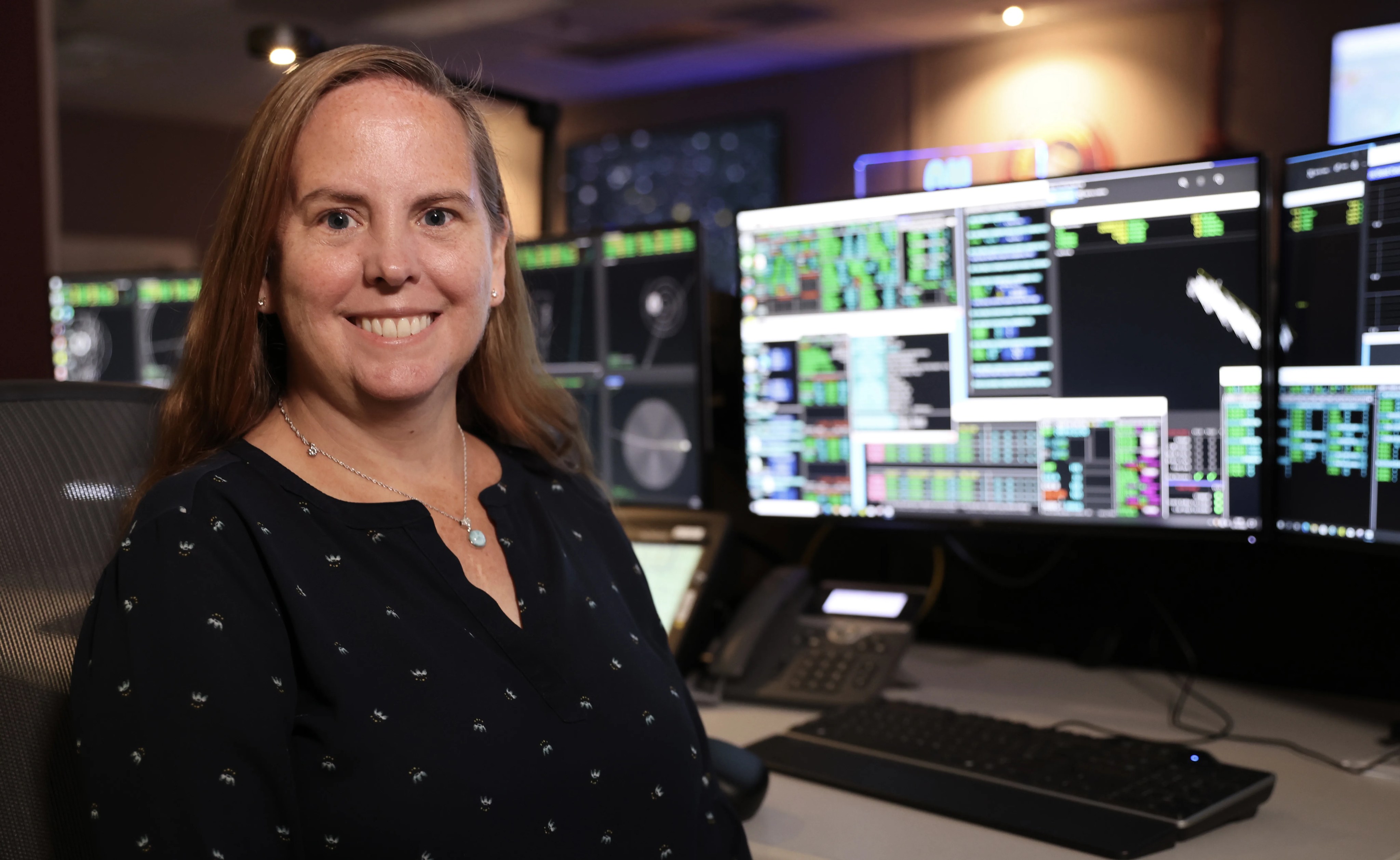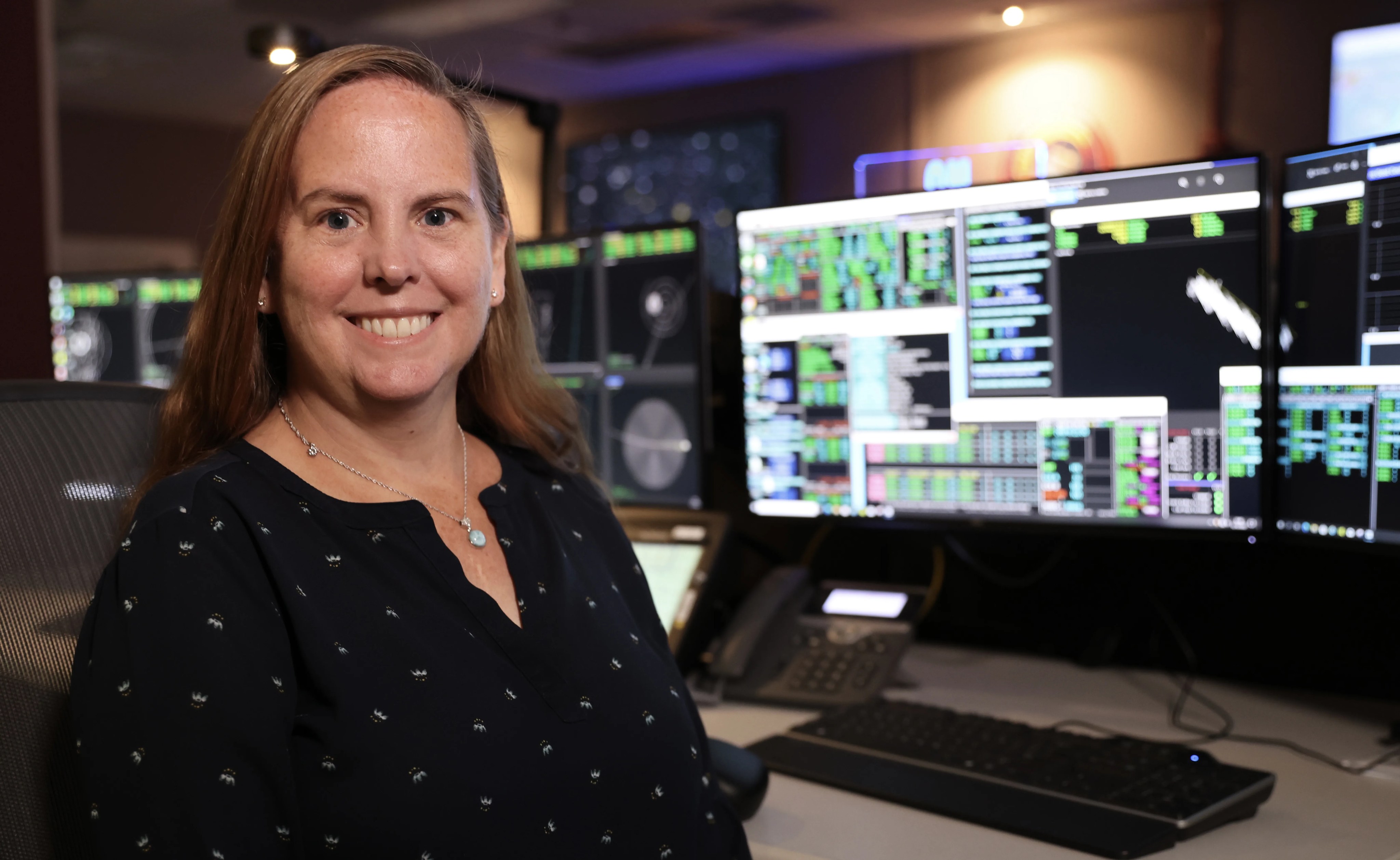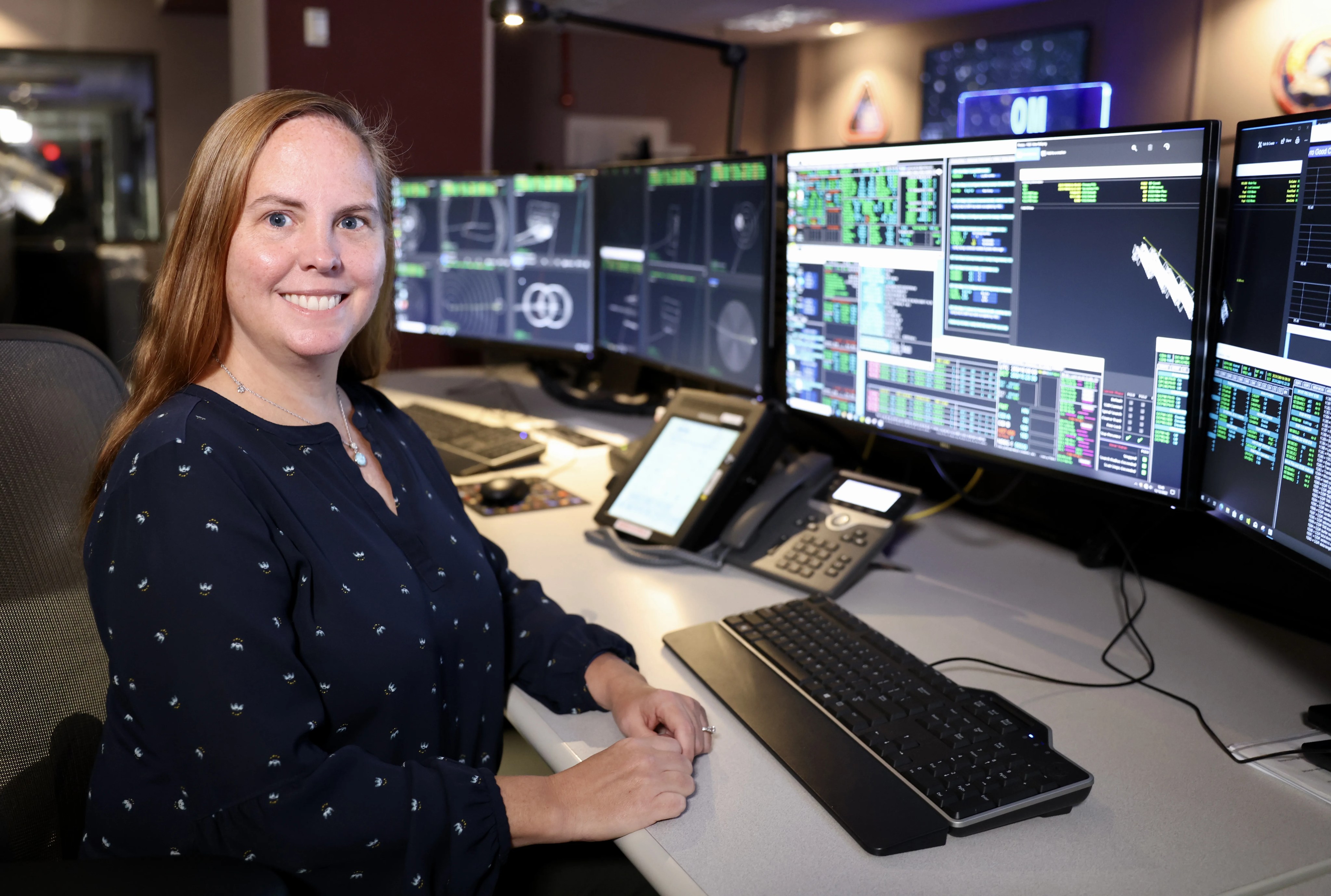
Morgan Van Arsdall
Deputy Operations Manager
In a quiet, calm room of engineers, Morgan Van Arsdall waited for the response from the Hubble Space Telescope to the change the Hubble team had just made to its operations, the biggest alteration since the final servicing mission to the telescope in 2009.
In 2021, a problem with the onboard computer that monitors the telescope’s science instruments was preventing the telescope from collecting data. After weeks of study and testing, the team had chosen to switch to previously unused backup hardware, some of which was installed when the telescope was first built to prevent just this kind of failure. To do it, they had to put the telescope into a protective “safe mode” suspension and then bring everything back online again.
As one of the anomaly response managers at the time, Morgan had been working for weeks to help identify the problem and plan out its fix, with the team sometimes working 12 to 16 hour days to ensure they understood the switch process and had practiced until they could perform it flawlessly. “There were moments when we were like, ‘Is this the end? Is something going to die and we’re not going to be able to recover?’” she said. When data began to flow from the telescope again, there were a few cheers but mostly grateful sighs. The atmosphere was one of tremendous relief, but today Morgan remembers the excitement as well.
When an anomaly comes, that’s when we get to see all the hard work and effort pay off and get to see that all the planning we did was effective.

Morgan Van Arsdall
Deputy Operations Manager
“So much of what we do in ops, because Hubble is normally just operating fine, is thinking about things that might go wrong or looking into the future,” she said. “When an anomaly comes, that’s when we get to see all the hard work and effort pay off and get to see that all the planning we did was effective.”
As a deputy operations manager for Hubble, Morgan is part of the team responsible for the overall health and safety of Hubble, making sure it can continue operating and exploring the universe for many years to come. She responds to any anomalies on the spacecraft to get it back up and operating as quickly as possible, and searches for ways to improve both its efficiency and lifespan.
Morgan came to Hubble after an interest in NASA that began in childhood. In fourth grade, she had followed the preparations for and endured the tragedy of the Challenger flight along with the other students. Afterward, her teacher talked to the students about what had happened, including the failure of the shuttle system’s o-ring seals. “That was the first time I realized there were people other than astronauts who were involved in space. There were engineers, and it was more than a ‘space is fun’ kind of thing.”
Morgan obtained a bachelor’s degree in aerospace engineering at the University of Notre Dame and a masters in science, technology and public policy at George Washington University. After graduation, she began as a systems engineer for military satellites for Lockheed Martin. In 2001, she began looking for a job on the East Coast and noticed that Hubble was hiring a systems engineer. “I thought, ‘Well, I’ll send them my resume but that's not going to happen.’” Instead, they called her in for an interview. “I remember going to one of the buildings with the big NASA meatball outside and it was like, ‘Wow, I’m at a NASA facility,’” she recalled. She would eventually become a Hubble systems manager, who makes sure that when changes are made to any one of the telescope’s subsystems, the effects on the other subsystems are considered and tested so the telescope stays in great shape, and then took on the deputy operations manager role in 2022.
One of the joys of her current role is getting a unified picture of the telescope and its operations. “It’s exciting to get that higher-level understanding of the program and see how it all fits together,” she said. “I think every single person involved with Hubble feels very responsible for Hubble and I feel very responsible. We’re taking care of this national asset for everybody, for the world.”
Morgan recommends that students interested in the field follow their enthusiasms. When she was in college, her major was small because aerospace was supposedly a fading field. “All industries go through ups and downs. If you’re excited about it, you’re going to do well. It will get hard at some point but that’s true for so many things in life. Don’t be upset if you’re not number one in your class ― if it’s something you’re excited about and want to do, keep going, you’re going to get to your goals eventually.”
For Morgan, following that passion was her route to success. “If 10-year-old me knew what I was doing right now, she’d be so excited,” she said. “If you asked me in high school, mission control for a NASA program would have been right at the top of the list. This is definitely where I wanted to be.”

